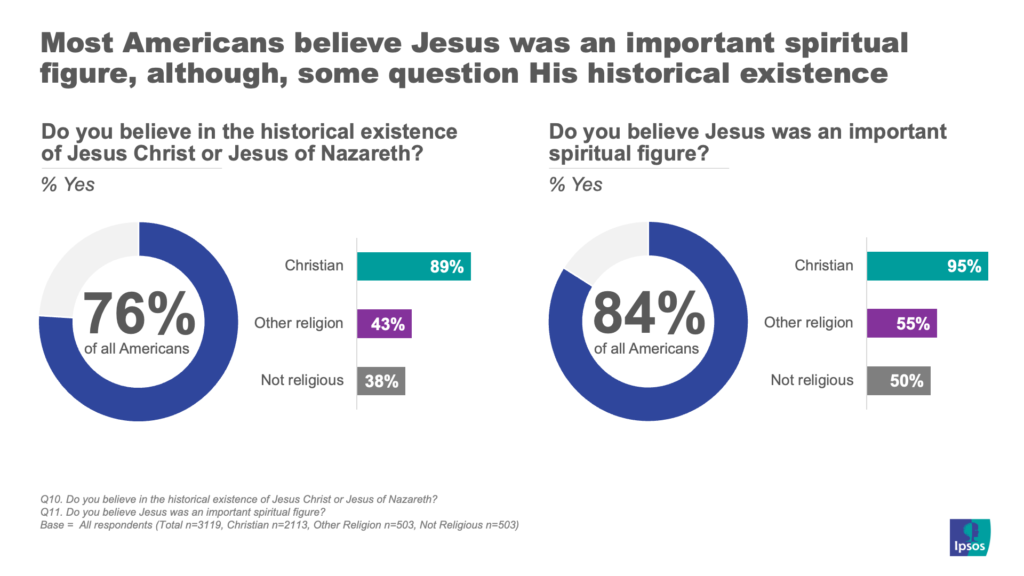Jesus in America
March 2022
Conducted by Ipsos for The Episcopal Church
Jesus in America is a national study released in March 2022 in a partnership between The Episcopal Church and Ipsos. The research found that while the majority of Americans polled believe Jesus was an important spiritual figure and want equality in society, it also showed Christians are not necessarily practicing what Jesus taught, and Americans feel judged when talking about their beliefs.
The study also found that the global pandemic has negatively impacted participation in organized religion — or religious activity — and more people are finding spiritual fulfillment in nature. In addition, while the church has been a place of community and non-judgment, some Americans feel that churches that discuss racism and slavery are acting with the wrong intentions.
Jesus and His Impact on Society
The majority of Americans (84%) believe Jesus is an important spiritual figure and want equality in society.



The State of Religion in America
Religion is not as divisive as we think it is.

Religion is losing influence in America, especially among young people.

Impact of the COVID-19 Pandemic on Religious Activity
The Pandemic has had a negative impact on participation in organized religion or religious activity and more Americans are finding spiritual fulfillment in nature.


Perceptions of Christians and Issues of the Day
There is a fundamental disconnect between how Christians and Non-Christians view of Christians and the role of the Church in addressing social and racial inequality today.



Methodology
The findings of this study come from a survey conducted by Ipsos for The Episcopal Church. The study was conducted using the probability-based KnowledgePanel among a nationally representative sample of 3,119 Americans, age 18 and older, from November 22 through December 2, 2021. Interviews were conducted in English and Spanish. The study has a margin of error of +/- 2.0 percentage points at the 95% confidence level.
The Episcopal Church welcomes all as it seeks to follow Jesus Christ into loving, liberating and life-giving relationship with God, each other, and the earth. Embracing a legacy of inclusion, The Episcopal Church encourages the expression of leadership gifts by all peoples of the church. As a member of the worldwide Anglican Communion, the third largest group of Christians in the world, The Episcopal Church includes 109 dioceses and three mission areas, and it operates in 17 nations or territories with about 1.8 million members.




